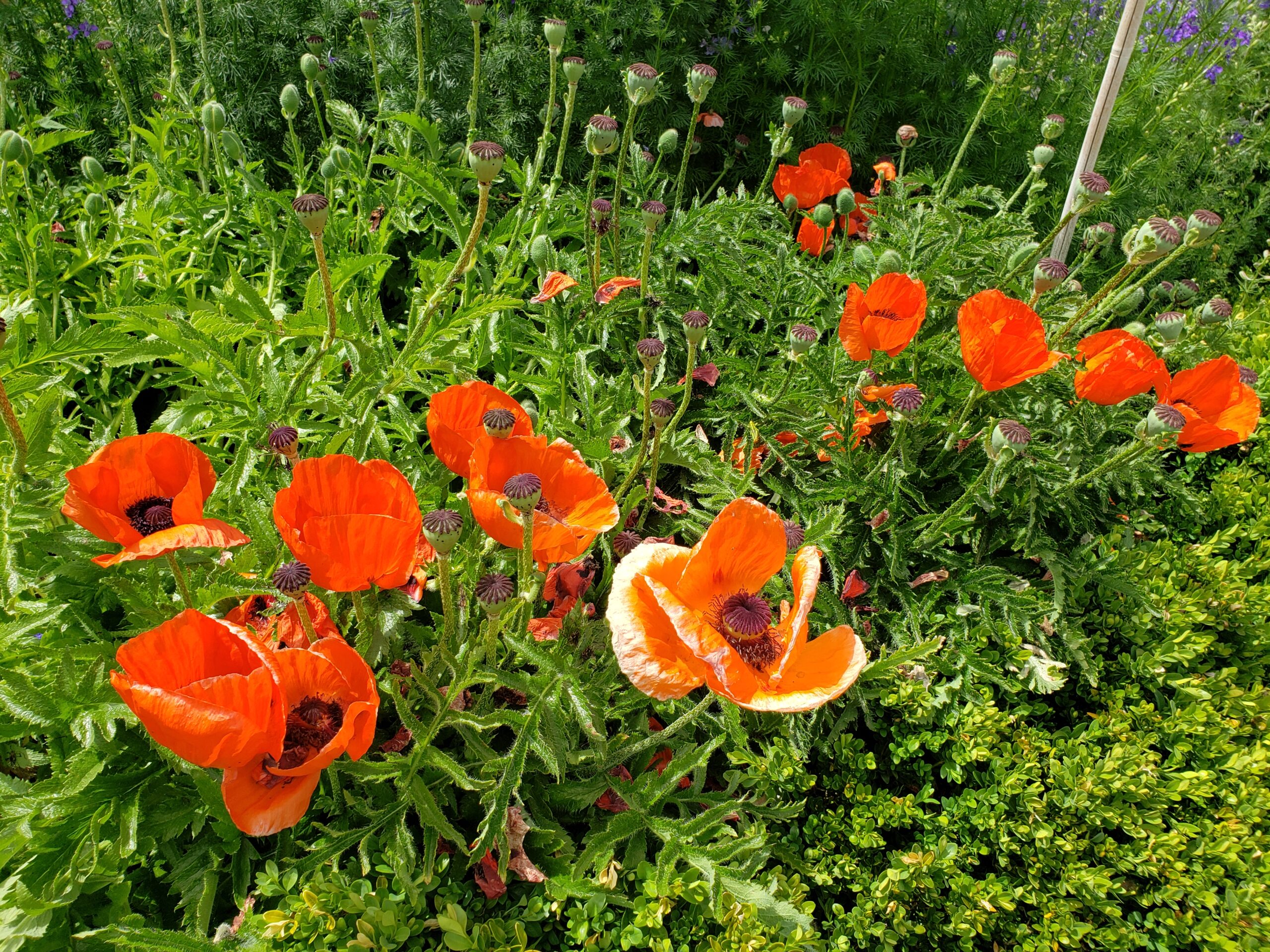


Oriental poppies add old-fashioned charm to gardens.
Are oriental poppies easy to take care of?
These plants usually are easy to grow, but they prefer sunny areas and soil that’s well drained. The plants are hardy, and do well in mountain gardens at high elevations.
Do poppies need wet soil?
No, poppies decline rapidly in poorly drained soils. It’s not a good idea to plant oriental poppies in areas where soil stays wet for extended periods.
When do poppies bloom?
The silky, bowl-shaped flowers appear in late spring and burst from distinctive buds covered in bristly hairs.
What colors do poppies come in?
Flower colors include scarlet red, glowing orange, salmon pink, sparkling white and bi-colored forms. Many of the flowers feature inky-dark blotches at the base of the petals and colorful stamens in the center. As petals fall, the remaining seed pod adds interest and contrast in gardens.
What should I consider when placing poppies in my garden?
 Careful placement of oriental poppy is essential. Its foliage dies back during the hot weeks of mid-summer, leaving a conspicuous gap. A well-chosen companion plant such as baby’s breath (Gypsophila paniculata) or whirling butterflies (Gaura lindheimeri) can help camouflage the open space.
Careful placement of oriental poppy is essential. Its foliage dies back during the hot weeks of mid-summer, leaving a conspicuous gap. A well-chosen companion plant such as baby’s breath (Gypsophila paniculata) or whirling butterflies (Gaura lindheimeri) can help camouflage the open space.
What should I do with poppies in the winter?
As temperatures cool down in September, new foliage emerges from the crown and persists through the winter. Oriental poppy may be left undisturbed indefinitely. The clumps will become large, but they generally aren’t invasive.
What plants are related to the oriental poppies?
Related plants include Iceland poppy (Papaver nudicaule), a perennial that generally lives for 2 to 3 years. Like oriental poppy, it prefers higher elevations and cool temperatures. Opium poppy (Papaver somniferum), another short-lived plant, will re-seed freely once established in a garden.
For more information, see the following Colorado State University Extension Fact Sheet(s).



